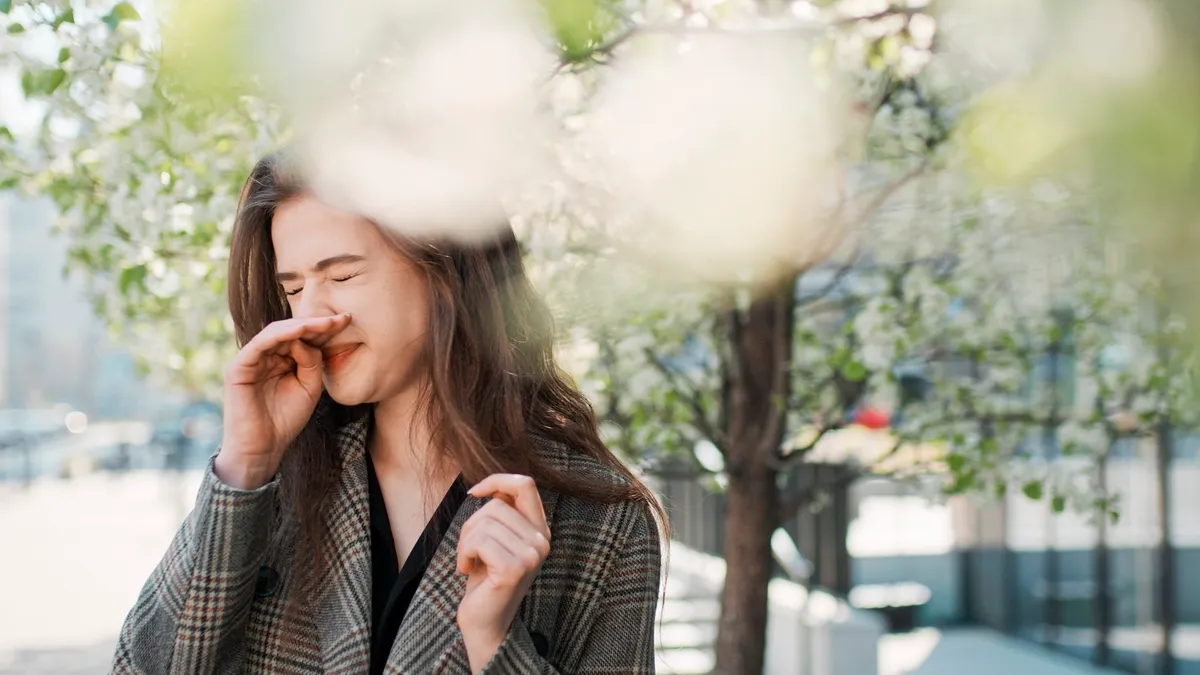
Spring never asked permission before it walked in.
You woke up and knew. Your nose told the truth before the window did.
Eyes that burned. Throats that whispered in sandpaper.
And it wasn’t even a cold. You hadn’t been around anyone sick.
The air felt too full. Windows were closed but it still got in.
You checked your weather app, not for rain. But for pollen count.
There’s a number for it now, like it’s part of the forecast
People used to talk about spring as if it were soft.
But those who know, know. You stop planning picnics.
You stop opening your sunroof. You scan the air.
And you check that tiny number, like it’s a warning label.
High levels mean headaches. Medium might still be trouble.
You learn your own threshold like it’s blood pressure.
It starts with your nose, but it doesn’t end there
The nose is just the first alarm. Then your eyes join in.
They sting, they flood, they betray you in public places.
No one believes you when you say it’s not crying.
Then the coughing begins. And the fatigue.
It’s not just allergies. It feels like a system shutting down.
Like your body is trying to hide from the season.
Everyone has advice but none of it feels like a cure
You hear it all. Saline spray. Local honey.
Stay indoors between ten and four. Change your clothes.
It sounds simple until you try it. Life doesn’t stop for pollen.
You still go to work. You still take the kids to school.
You can’t live in an air purifier.
And not everyone wants to take pills every day.
You start mapping the world in pollen safety zones
The park becomes off-limits. The garden, a trap.
You avoid areas with lots of grass. Trees become suspicious.
You find corners of the city that feel safer.
Indoor malls. Subways. Your car with the filter on.
You track the seasons the way others track holidays.
Late March means caution. April feels like survival.
Medications help but they don’t erase everything
Antihistamines dull the edge, but never fully.
Nasal sprays sting but offer a few hours of clarity.
Eye drops are brief relief. A pocket tool kit.
You learn which brands make you sleepy and which don’t.
Some days, even with meds, your head feels packed with cotton.
Breathing feels like work. Thinking takes extra energy.
You clean like there’s something invisible haunting your house
Vacuuming becomes daily. Bedding gets washed twice a week.
Air filters are replaced on a schedule now.
Shoes stay at the door. Windows stay shut.
Pets become potential carriers. You wipe their paws.
Every surface might be holding something.
You start to feel like you’re chasing ghosts with a mop.
Weather apps are not just for rain anymore
They have charts now. Pollen levels in green, yellow, red.
It’s part of your routine. Check the pollen like checking traffic.
You plan your day around it. Choose your route differently.
Some days, you cancel plans without explanation.
Your friends understand. Or they don’t.
But your body doesn’t let you forget.
There’s a loneliness in reacting to something no one else can see
Pollen isn’t visible. People can’t tell it’s affecting you.
They think you’re overreacting. Or being dramatic.
It’s hard to explain tiredness that comes from breathing.
You stop talking about it unless someone brings it up.
You become quiet about your symptoms.
But the struggle is steady and constant.
You become an expert in symptoms no one takes seriously
You know the difference between itchy and burning.
Between a mild day and a warning sign.
You feel the pressure behind your eyes and know what it means.
You recognize the early signs of a flare-up.
You carry tissues, eye drops, and gum like armor.
You look fine, but you’re managing every minute.
Food starts to play a strange role in all of this
Certain fruits make your mouth itch more.
Raw apples feel like a challenge.
You read about cross-reactions and oral allergy syndrome.
Bananas and melons join the suspect list.
You become cautious with smoothies.
You question harmless things like celery.
You wonder why this never got easier over the years
It’s not like you’re new to it. This isn’t your first season.
But every year, it feels like a surprise.
You brace for it, and it still knocks you over.
You wonder if climate change is making it worse.
The season feels longer. The air feels heavier.
Your old tricks don’t work the same anymore.
Sleep becomes fragile and mornings start with defense
You don’t sleep well. Your nose blocks up by 3 a.m.
You wake up groggy. You reach for water and tissues.
You start your day not with coffee, but antihistamines.
Shower becomes strategy. Clothes are chosen carefully.
Plans are made around your worst hours.
And you hope for windless days.
Conversations about it rarely go deep
People say bless you. They ask if you have a cold.
You say it’s allergies, and the topic ends.
No one wants to talk about pollen.
But you think about it constantly.
You monitor the outdoors like a threat.
You live with a quiet dread of April.
You don’t hate spring, you just don’t trust it anymore
It used to mean lightness. Now it means precautions.
You see flowers and brace yourself.
You don’t go barefoot in grass.
You scan the sky not for clouds, but for particles.
It’s not joy. It’s strategy.
Spring became something you prepare for, not celebrate.
Nothing feels better than a day when your nose behaves
Once in a while, there’s a clear day.
No sneezing. No headaches. Just normal breathing.
You notice it immediately.
You go outside and feel like yourself again.
You don’t take it for granted. You know it won’t last.
But you breathe it in like borrowed time.
